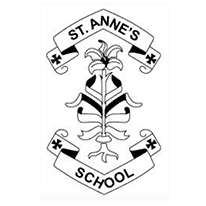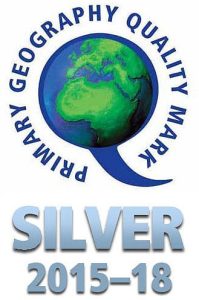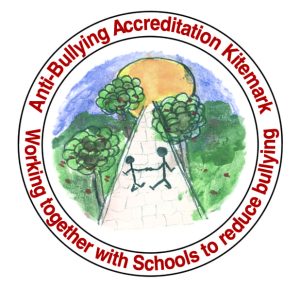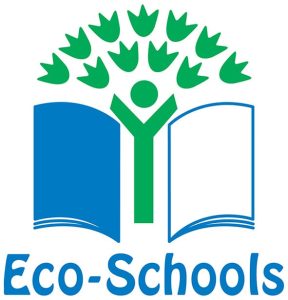Curriculum Diet
In a diverse world, our curriculum ‘diet’ lays foundations for the world outside of school. The curriculum and the core Christian values which underpin it, help the pupils to grow and flourish as independent, resilient learners, through personal development for all, regardless of starting points. Through it, we provide a holistic education, living out the values for flourishing of all members of the school and impact on wider community, thereby raising achievement for everyone. Our rich curriculum ensures that pupils develop strong learning skills and habits. They find the areas that allow them to shine and are keen and determined to work on areas which are more personally challenging. It is designed to meet the needs of all, whatever their talents may be. To this end, the school employs specialist teachers in certain subjects in order to provide quality teaching and learning opportunities:
- PE and Sport – high emphasis is placed upon this area. A specialist existing member of the staff team was redeployed as our Director of Sport, working with most children across the school for curriculum PE. He also arranges for whole classes to partake in a variety of sports festivals and for school teams to participate in leagues and events, offering pupils curricular and extra- curricular opportunities to experience the fun and enjoyment that these activities offer.
- Music – two classes play an instrument (recorder in Year 3 and ukulele in Year 4 via a LA music specialist employed by the school). We have peripatetic music tuition for all Key Stage 2 pupils; many children take up the opportunity to play a musical instrument and careful stewardship provides opportunities for funds to be allocated from the school budget to support families who find the fees difficult to pay. The flourishing choir of 40 –strong members regularly sings both for the school and wider local community.
- ML – The school employs a specialist secondary teacher to teach Spanish across Key Stage 2.
- Outdoor Education The school’s commitment to outdoor learning leads pupils to enjoy the benefits of being outside, particularly relevant in the wake of the pandemic. Our appointed Forest School teacher developed pupils from Reception to y6. An inspirational range of activities linked to DT (as subject lead), Food Tech and Mindfulness enhanced this further (2015-2021). Such was the success of the programme that with the retirement of the former practitioner (Summer 2021), Forest School skills are built on throughout the school via our cross-curricular programme of outdoor education (Geography, PSHE, History, Maths, Science, DT and Food Technology, Citizenship) building in hard and soft outcomes to work towards the NNAS Outdoor Discovery Award. The syllabus operates at three different levels, each under five headings (engage with the outdoors; making your own map; journeying; symbols and scale; setting a map. It is led by the secondary Head of Outdoor Education Department (2021 onwards)
Extra-curricular:
Our curriculum is built on an understanding of the child’s personal development, providing a varied programme of experiences for all pupils and promotion of out-of-hours learning through varied extra-curricular activities and clubs (netball, dance, Jujitsu, table tennis, hula hoop, keep-fit, boot club, boxacise, gymnastics, football, futsal, soft archery, running club, knitting, photography, film club, Bike It Club; gardening; cookery; homework; drama; art; Decopatch; robotics; choir; Science Fairy; STEM; bushcraft)
Values lie at the core of a ‘hidden curriculum’ where each child, no matter what their ethnic or religious background, grows. The school is determined to allow pupils to flourish by offering new opportunities, particularly in diverse areas based on their own personal interest. To ensure that all our pupils enjoy and engage with a range of experiences linked to their curriculum, we match these experiences to the curriculum content and skills being worked on by via an Experience Map (2019-2020)
Current class- based extra-curricular projects for Autumn 2021 are:
Year 6 (Archbishop of York Young Leaders- Intergenerational Project KS2) Year 5 (John Muir Award) Year 4 (Mini Police Programme) Year 3 (LA Climate Change Project with Lithuania) Years 1 and 2 (Archbishop of York Young Leaders- Intergenerational Project KS1)
Please explore our Weekly Newsletters and Class Page section for curriculum evidence.
Support for Pupils’ Spiritual Development
- Children need to reflect to gain the skills necessary to understand their feelings and be able to find solutions to the issues posed by life. The emphasis in the curriculum on SMSC, British Values and PSHE, particularly those topics linked to faith, support these opportunities. Our children have become spiritually aware, curious learners who have the confidence to explore the messages from the Bible, skills that we see applied in other areas of the curriculum. Engagement in RE is high and children look forward to the sessions. Children in our school are willing to share their thoughts and beliefs, not only in RE but also in the wider curriculum. Lessons are designed with reflection time, to develop the children’s spirituality and wonder, to give them the space to reflect on the aspects of the Christian story to help them to flourish and live life in all its fullness.
- The school’s successful application for the Christian Aid ‘Global Neighbours Accreditation Scheme’ at Bronze Level is another example of where opportunities across the curriculum are planned for children to explore ethical topics. Other pupil-led awards driven by the Rights Respecting and Fairtrade scaffolds provide further opportunities, alongside charity events more explicitly linked into learning. Teachers regularly focus on relevant issues around injustice or environmental concerns in class worship times. We want our children to be aware of global concerns as courageous advocates.
- The school’s outward-looking approach to its’ termly Prayer Space events, each of which is bespoke to our youngest children in Nursery and Reception, have developed a sense of awe in all our learners, as evidenced through their questioning and curiosity. This is accessible to all, regardless of ability, and provides another opportunity for children to write their own prayers.
- Worship planning is channelled through the ‘Looking Up’ chaplaincy team with a focus on ‘faith in action’. It creates opportunities to reflect and to address BIG questions. Worship always includes prayer. There are also a number of other opportunities throughout the day for prayer, including beginning end of day prayer in classes. Children can write their own prayers and have contributed to the publishing of two prayer books: ‘Hope and Pray’ was the first edition and the second of which focuses on the rewritten School Prayer, containing our values. Teachers respond to questions raised by the curiosity of pupils e.g. when quiet reflection and silent times are a part of our day to help nurture children’s spirituality or in ‘I Wonder’ sessions with the Mission Team.
- Each class has a worship focus area to remind the children that worship continues in class. Around school there are a number of other prayer spaces, which children are free to access during play or lunchtimes. They particularly visit the Prayer Garden, originally designed by the children as a past pupil, family member and pet memorial. Displays around school ensure values are revisited regularly, so that they are meaningful and have a practical application to the children in their everyday life at school.
- The school’s increasing levels of deprivation, as evidenced by IDACI analysis, exposed the school’s increasing levels of spiritual poverty, time poverty, social poverty and cultural poverty. A more recent focus on ‘Cultural Capital’ prompted an extension of lunchtime to increase socialisation opportunities and place an emphasis on etiquette. Our vulnerable individuals and groups are also supported by the chaplain’s open- door policy at lunchtimes.




















